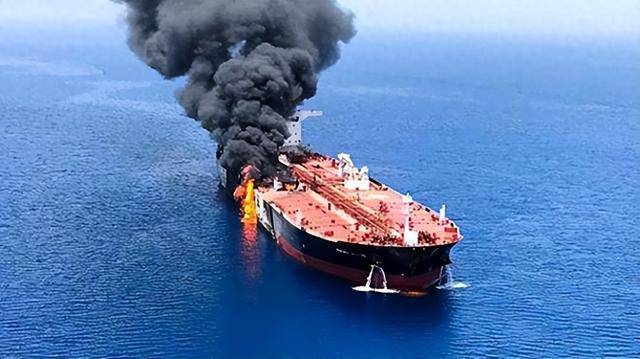
The Kiel World Economic Research Institute, a well-known German think tank, released its Kiel trade indicators for December 2023 on the 11th local time. The red sea container shipping volume decreased by more than half in December last year, with a daily throughput of only about 200000 containers, a decrease of about 300000 containers from November last year, nearly 70% lower than expected. As a result, the transportation costs and duration of goods between Europe and Asia have significantly increased, causing an impact on European imports and exports. Specifically, in December 2023, global trade decreased by 1.3% month on month; EU exports and imports decreased by 2.0% and 3.1% respectively month on month.
Tesla Berlin factory shut down due to component shortage
Tesla announced on the 11th that it will suspend most of its car production at its factory near Berlin from January 29th to February 11th, citing a change in transportation routes due to the Red Sea vessel being attacked, resulting in shortages of some components. "The armed conflicts in the Red Sea and changes in transportation routes between Europe and Asia via the Cape of Good Hope have also had an impact on production in Glenhead (the location of the Berlin factory)," Tesla said in a statement. "The extension of transportation time has caused a gap in the supply chain."
Tesla stated that production will fully resume on February 12th. The company did not respond to more details such as which parts are missing and how production will resume at that time. Iranian backed Hussein militants attacked Red Sea ships as a sign of support for the Palestinian Islamic organization Hamas fighting against Israel in Gaza, triggering the Red Sea crisis.
The attack by the Houser militants has forced almost all top shipping companies around the world to avoid the Suez Canal, which is the fastest sea route from Asia to Europe, accounting for about 12% of global sea transportation. These shipping giants choose to detour around the Cape of Good Hope in South Africa, which increases the distance from Asia to Nordic Europe by about 10 days and fuel costs by about $1 million.
European natural gas prices have risen by over 7%
Against the backdrop of escalating conflicts between Israel and Hamas, European natural gas futures prices continue to rise, and the market is concerned that this conflict in the Middle East may escalate into a broader geopolitical conflict. The European natural gas price benchmark, TTF natural gas futures, rose sharply by over 7% after trading began. Previously, the United States launched an attack on a target in Iraq, and Hussein militants launched attacks on "Israeli related merchant ships" in the Red Sea region, exacerbating concerns about the increasingly unstable situation in the Middle East. International crude oil prices also continued to rise to their highest point in December due to the escalation of the Red Sea shipping crisis. As of the time of publication, the natural gas futures price of Dutch TTF in the past month has risen by 7.377% to 36.695 euros per megawatt hour.
Although the diversion of ships to Cape of Good Hope has not yet had a significant impact on the global supply chain system, the market remains highly vigilant due to potential threats to the main transit routes for energy exports. According to tracking data from institutions, some ships carrying liquefied natural gas cargo have changed their routes to bypass the Cape of Good Hope in Africa in order to avoid the Red Sea. However, the voyage is much longer than the established time, far exceeding a month, and the potential additional shipping costs may exceed one million US dollars.
Europe and America Worried about Logistics Crisis
According to US logistics service provider Project44, there may be shortages of available goods in some regions around the world in the coming weeks. The supply chain analyst report from this company states that "retailers did not consider additional delivery times due to unforeseeable events when planning inventory." After the peak demand during holidays, inventory may be depleted. Starting from February, this may become apparent.
The New York Times reported on the 8th that so far, the problem of the Red Sea has not seriously disrupted the global supply chain like the pandemic. "But the situation is developing in that direction," said Fugition, director of the UK Institute for Export and International Trade. How the container shipping industry can cope with the annual surge in exports will be a key issue, which usually occurs several weeks before Chinese factories shut down during the Spring Festival in February.
Ava, a white-collar worker at a bank in Frankfurt, Germany, told reporters on the 10th that in previous years, January was the discount season for major e-commerce platforms and retailers in Germany. However, there has been no major movement this year, and some items have even experienced price increases and sales interruptions. She feared that the crisis of the Red Sea Channel would further exacerbate the high inflation caused by the Russia-Ukraine conflict and the Palestinian Israeli conflict.
The European economy will be severely affected by the Red Sea crisis
The current Red Sea crisis has forced some shipping companies to detour to Cape Mong in order to avoid risks. In addition to increasing transportation costs, it will also inevitably increase the pressure on the transportation volume of Cape of Good Hope, and lead to an increase in maritime transportation insurance premiums. This will ultimately lead to an increase in global economic operating costs, which is not conducive to suppressing inflation and global economic growth, and is equivalent to adding insult to injury to the sluggish global economy. The Red Sea crisis has had a more prominent impact on the recovery process of the European economy. After the Ukrainian crisis, Europe relied more on the Middle East for energy. Whether it is supply disruptions or price increases, they may be difficult for the European economy, which is in a vortex of high inflation, to bear. According to data, Qatar ranks second among the countries that import liquefied natural gas from Europe, with approximately a quarter of the total liquefied natural gas imported from the Qatar region in 2022.
In summary, relatively speaking, the Red Sea crisis has the greatest impact on the European economy and directly affects the cost and security of energy supply in Europe, especially for European countries with high energy dependence on foreign countries such as Germany and France, which may have a more significant impact.

Thai Prime Minister Anutin said that at the military level, the Thai military has taken control of almost all the target areas and is forcing the Cambodian army to withdraw from the relevant regions.
Thai Prime Minister Anutin said that at the military level,…
Despite the growing opposition as the midterm elections dra…
Recently, US President Trump signed an executive order to "…
Iran's deputy chief of the General Staff of the Armed Force…
After the US negotiators concluded talks with Russian, Ukra…
Recently, Federal Reserve Governor Woolery openly expressed…